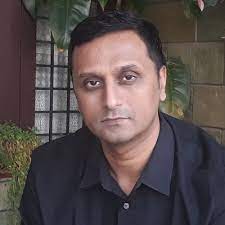

A Note on Law in India
- /
- Articles and Blogposts /
- A Note on Law in India
A friend recalled something a friend of his had said on hearing how Joseph K, the protagonist of Kafka’s The Trial, waited outside the court not knowing what his crime is: “Why? Didn’t he know anyone inside?!” This anecdote is of course more than an anecdote.
Law is not a source of paranoia about the loss of freedom in India. Nor is it a primary source of reassurance about why order exists in India. Indeed, law more commonly seems a pliable phenomenon: I know someone who knows someone who knows someone who can get it to work (or not work). And, people also get law to behave the way it is expected to.
Our relationship with modern law couldn’t not have been complex.
In the West, the ideals of citizenship – civil, political and social – were got from the state as an outcome of social struggle and revolution that wished to end the arbitrary power of monarchy and the church and put a democracy in place. It has been 200 years since this process began there.
The Indian state, as we know, embraced the constitutional ideals of citizenship without demands for them from below. The last six decades have been a period where these ideals have tried to find anchor in the minds of people. The state has done its bit in this regard. The news media, schools, political parties, and social movements have also contributed to making Indians see themselves as citizens above everything else. Realities of brute power and vested interests have of course tried to subvert this process. The diverse religious traditions and moral philosophies of Indian civilization, whose visions of freedom and equality are at odds with those embodied in the constitution have also existed alongside to provide meaning to social existence. They have held out their own standards of reasonableness and of acceptable and unacceptable conduct.
Gandhi of course doubted the indispensability of lawyers for society and affirmed his faith in negotiating settlements outside the route of litigation. In his writings on village reconstruction, Tagore had felt that the village communities could manage local disputes without the necessity of the police or the courts. Gandhi and Tagore represent the continuing attractions of the desire to arrive at settlements outside courts. The ideals of community life that they espoused still matter in public life: the ideal of self-sacrifice, whereby an individual subordinates his or her interest for the sake of the community’s welfare, is very strong. Or, the ideal of tolerance which lets people overlook faults, small or big, is also key to understand why so many city residents reconcile to live with their neighbours’ bye-law violations or not bother to report a dented bumper to the police. The pain of navigating the police and the courts can explain these only to an extent.
The stark power realities that let the powerful to use and disregard law as and when they please has not meant a popular cynicism towards law. Ambedkar and a whole gamut of distinguished political and social activists have attempted to build inspiration towards law as an instrument of social justice and political freedom. Legal activists continue to engage the courts as if vulnerable citizens mattered and gain victories for democracy. And, even if led by considerations by TRPs, media’s vigilante activism towards the legal misconduct of the government machinery, political parties and, on occasion, corporate companies, is high. Despite the absurdly high rates of pendency, law still holds out a way for the affected.
We will have to start looking closely at how the various imaginations of law, civility, and equality are working around us. Instead of viewing liberalism as sacrosanct and the other imaginations of law as illiberal and non-modern, a responsible political task will be to see how liberalism can be challenged, enriched and re-imagined by other ideas of equality and freedom. And keep the future open.
The views expressed in this article are solely those of the author’s and they do not represent the views of DAKSH.

Chandan Gowda
RECENT ARTICLES



Mapping Judicial Time: A Two-by-Two Framework for Categorising Listings

Judicial discipline or lack thereof in NCLT and NCLAT

-
Rule of Law ProjectRule of Law Project
-
Access to Justice SurveyAccess to Justice Survey
-
BlogBlog
-
Contact UsContact Us
-
Statistics and ReportsStatistics and Reports
© 2021 DAKSH India. All rights reserved
Powered by Oy Media Solutions
Designed by GGWP Design